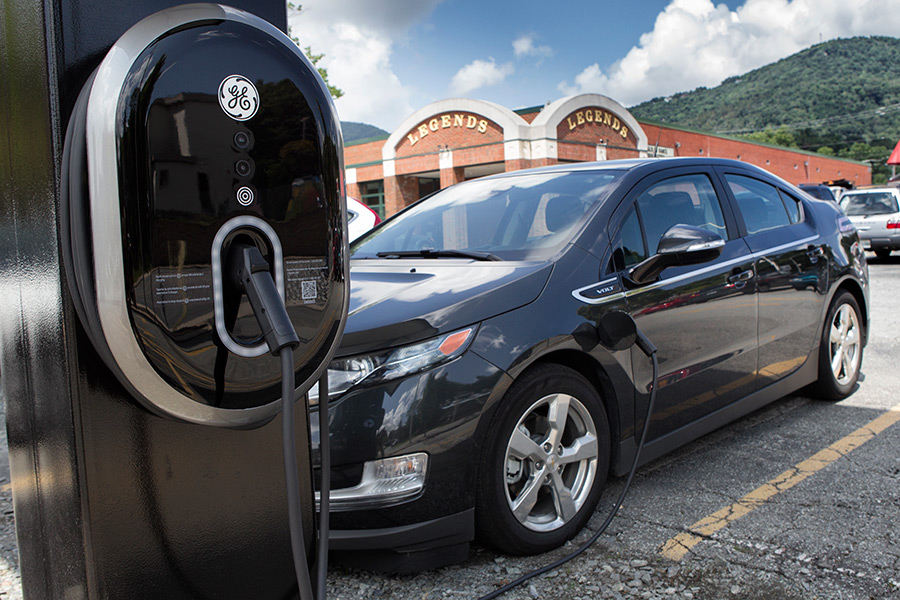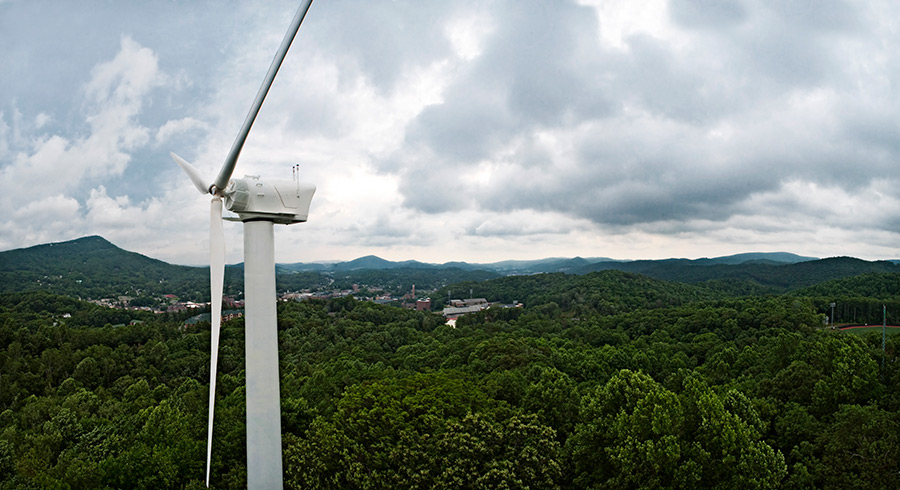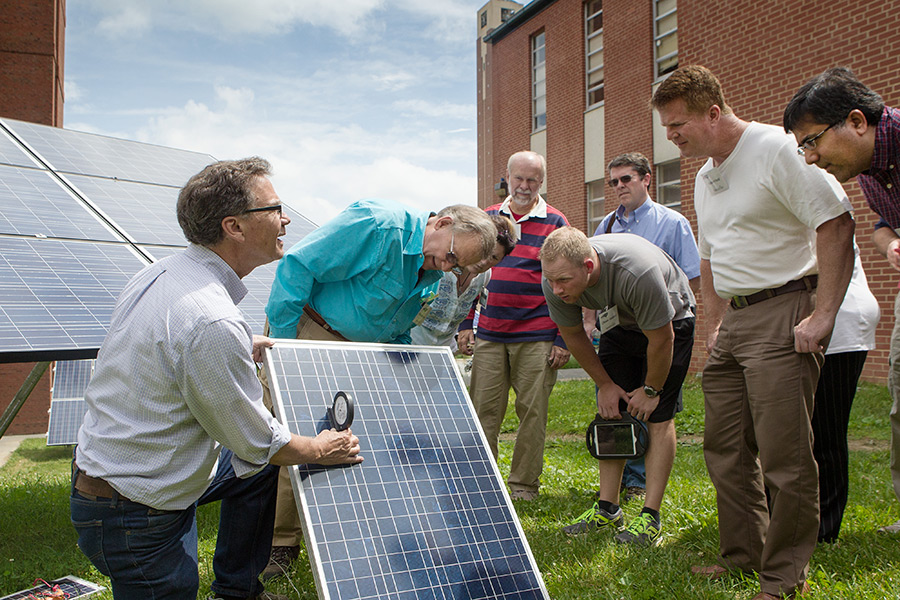BOONE, N.C.—Appalachian State University has received a Utility Savings Initiative Achievement award from the N.C. Utility Savings Initiative and the N.C. Division of Environmental Assistance and Customer Service.
Appalachian received the award because it has reduced energy use by at least 30 percent since state laws establishing energy goals for public facilities went into effect. Energy reduction requirements were enacted in 2002 for universities.
“This just shows the great efficiencies that can be achieved when you’re committed to a goal,” said Ted Bush, director of the Division of Environmental Assistance and Customer Service.
“By reducing the amount of energy used, our universities and community colleges are also helping the environment by emitting far less air pollution and reducing their operational costs, which benefits taxpayers.”
Dr. Lee F. Ball Jr., Appalachian’s sustainability director, echoed Bush’s sentiments.
“The Utility Savings Initiative perfectly aligns with the university’s mission, strategic plan and our ongoing goals to reduce the institution’s carbon footprint associated with campus energy use,” he said. “The initiative also complements our focus on using the campus as a living laboratory where students directly benefit through the active engagement of campus energy upgrades.”
The award that Appalachian has received reflects many conservation measures undertaken at the university since 2007, said Paul Forte, vice chancellor for business affairs at Appalachian.
“We are just completing our third Energy Savings Performance Contract on campus,” he said. “The cost of all three of our performance contracts together is about $21.5 million, all of which has been paid for by the energy and water savings generated from the projects themselves. We have also received some $600,000 in federal and state grants since 2007 to pay for energy-savings projects.”
Forte also mentioned the prominent use of LED lighting on campus. Over 95 percent of Appalachian’s outdoor lighting has been converted to LED, and 16 campus buildings are lit fully with LED, another two dozen partially so. LED lights use just 10 percent of the energy of incandescent lights and less than half the energy of compact fluorescent bulbs, InsideClimate News reported in 2015.
Finally, Appalachian has a 100-kilowatt, community scale wind turbine on campus, and thanks to the Renewable Energy Initiative (REI) led and funded by students, many other renewable energy projects have been installed on campus.
All told, Forte said, Appalachian has accumulated over $29 million in avoided energy and water costs since 2007.
The initiative works with all 14 state agencies and 21 state universities and affiliates that report their progress toward the energy and water use reduction goals. To help public facilities achieve the 30 percent goal, staff members with the initiative provide assistance in the form of strategic energy management planning, energy performance contracting, on-site energy audits, energy management training and a host of other areas, said Len Hoey, who leads the Utility Savings Initiative.
In addition to Appalachian, the following public universities and community colleges reduced energy use by 30 percent: Fayetteville State University, UNC Charlotte, UNC General Administration, UNC Wilmington, Western Carolina University, Central Piedmont Community College, Davidson Community College, Pitt Community College, Wake Technical Community College, Beaufort County Community College and Montgomery Community College.
About Appalachian State University
As a premier public institution, Appalachian State University prepares students to lead purposeful lives. App State is one of 17 campuses in the University of North Carolina System, with a national reputation for innovative teaching and opening access to a high-quality, cost-effective education. The university enrolls more than 21,000 students, has a low student-to-faculty ratio and offers more than 150 undergraduate and 80 graduate majors at its Boone and Hickory campuses and through App State Online. Learn more at https://www.appstate.edu.
What do you think?
Share your feedback on this story.





![How NCInnovation Is Rethinking Economic Development in North Carolina [faculty featured]](/_images/_posts/2026/02/rethinking-economic-development-600x400.jpg)








